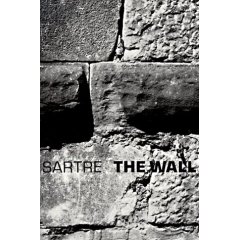
If you're looking for light and fluffy, don't open this book. There's nothing dark or sinister about this collection of short stories, but Sartre--along with Albert Camus, among the most iconic existentialists--doesn't candy-coat anything.
The characters of these stories are believable and recognizable, and the settings are just well enough established to support what Sartre plans on examining: the misery of human existence. Most of Sartre's attention is focused on the characters' mental lives, and he brings them to life in ways that are both remarkable and mundane. Remarkable because he's so accurate, and mundane because what could be more familiar than human neuroses?
None of the characters are especially likeable, and none of the plots are that profound, but the importance of these stories lies elsewhere. Sartre avoids, as well as anyone ever has, the anti-intellectualism Milan Kundera has identified as that which demands anything from literature other than the aesthetic. This coincides with the basic premise of Sartre's brand of existentialist philosophy: life is what it is, and hell is other people, so suck it up, Sally.
I probably won't return to this collection often, but I'm glad to have read it. Somehow, seeing petty lives bathed in this weak, gray light makes me more content to be just one of six billion lice on Earth's scalp.

No comments:
Post a Comment